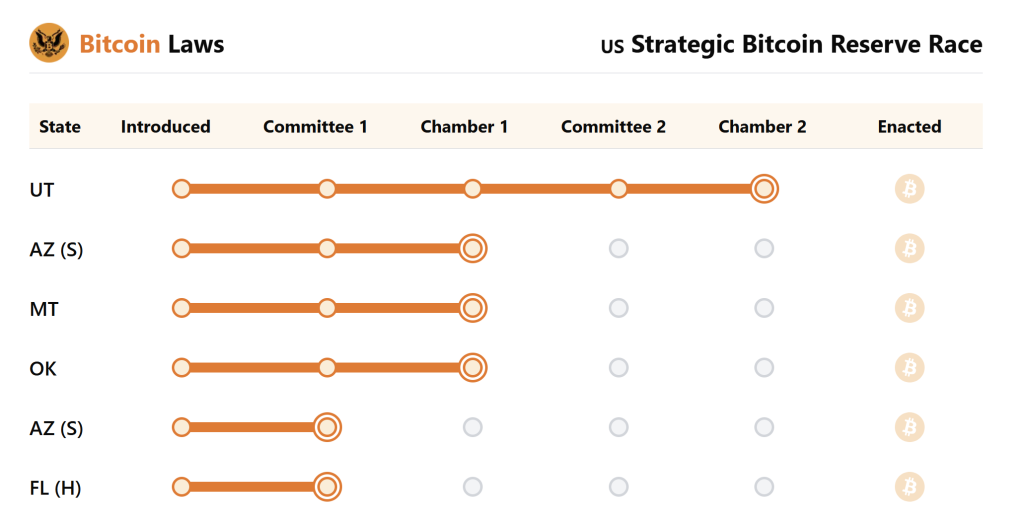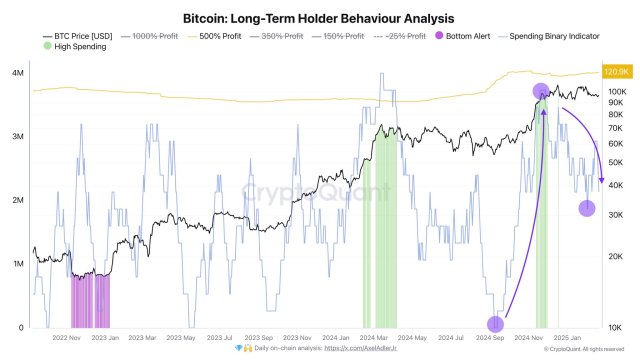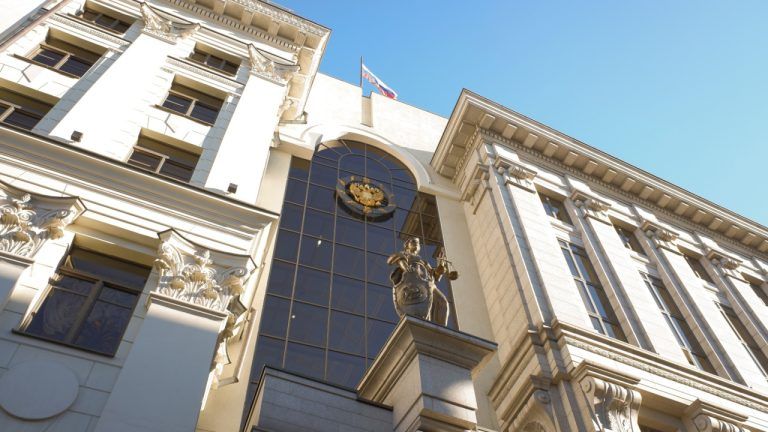
The harsh language of the CBR’s report sent waves of panic, but now it seems that the regulator might have few allies in the government.
On Jan. 20, the Central Bank of Russia (CBR) issued a report summarizing its position on digital assets and proposing a ban on any crypto trading and mining operations in the country. Although the CBR’s strict position on the matter was never a secret, such a bold statement triggered waves of fear, uncertainty, and doubt — otherwise known as FUD — across the board, given Russians’ high rates of involvement in the global digital assets market.
Yet, there are reasons to doubt the ultimate effectiveness of the CBR’s hardline bidding, both in terms of its enforceability and its acceptance by other power centers, including legislators and siloviki (securocrats). The picture gets even more complicated for the central bank, as a high-ranking official within another major center of economic policy, the Ministry of Finance, spoke in favor of regulating, rather than banning, crypto earlier this week. What are the chances that the hardline approach will prevail?
What does the CBR intend to ban?
Using an assortment of standard crypto-phobic arguments, such as comparing digital assets to a Ponzi scheme, the central bank’s “Cryptocurrencies: Trends, risks, measures” report calls for a complete domestic ban on over-the-counter trading desks and crypto exchanges alongside mining. Notably, the emphasis is on using the legacy financial infrastructure: The CBR addresses its document to private banks and institutional investors, discouraging them from any involvement in digital assets.
In its current version, the proposed ban would not outlaw the possession of digital assets by individual investors, nor would it ban exchanging them using international rails. Still, the regulator wants to introduce some fiscal transparency and make sure that private investors won’t escape their tax burden. Nonfungible tokens (NFTs) would also likely remain outside of the scope of the ban.
Possible effects on crypto operations
Many domestic stakeholders don’t believe in the effectiveness of the proposed restrictions. Speaking to local media, Maksim Malysh, CEO of mining platform Kryptex, explained that it is unlikely that the mining ban would result in a market breakdown, as the largest Russian-owned mining pools operate outside of Russia’s borders and are registered as foreign companies. Exchanges, he maintained, would not find it difficult to create new mirror sites in the event domains are blocked. In Malysh’s opinion, “Any blockings would lead only to the rise of VPN services’ popularity.”
Andrey Mihaylishin, co-founder of crypto payments system Joys, doubts that the measures proposed by the CBR would stop larger investors either — they could simply open accounts with Belorussian or Kazakh banks where crypto investments are legal.
Since the report invites public input, there is hope that industry participants will be able to articulate compelling arguments against the ban. The biggest Russian mining pool, EMCD, plans to send its comments on the report to the central bank, sharing with the regulator its thoughts on the taxation, risk management and further institutionalization of mining. Among EMCD’s ideas are special energy tariffs for mining companies and tax deductions for those that operate in Russia’s economically depressed regions.
At any rate, the report is not a legally binding document, unlike the federal law “On digital financial assets and digital currency” that was passed in 2020. The language of the law is vague and, for example, does not mention mining at all, though it still allows for “the issuance of digital financial assets.”
The unlikely allies
It came as no surprise that the vocally pro-liberty founder of Telegram, Pavel Durov, bashed the proposed ban, warning of its destructive potential for “the development of blockchain technologies in general” and “a number of sectors of a high-tech economy.” Much more unexpected, however, is the backlash against the CBR report among other government bodies and officials, which contradicts the simplified image of a monolithic Russian state machine.
Andrey Lugovoy, deputy chairman of the Committee on National Security and Anti-Corruption of the State Duma — the lower chamber of the Russian parliament — publicly noted that it would be more reasonable to continue working on legalizing the industry rather than outlawing it. Lugovoy, who also was one of the initiators of a working group on the legalization of crypto mining, said:
“When you make statements like this — ‘We strictly prohibit’ — you should ground your position in concrete, clear, apprehensible numbers and explain what you’re going to do with the people who already own cryptocurrency. [...] Nobody knows why the CBR holds such a radical view. There is a single explanation — high volatility and ‘It’s a Ponzi scheme.’ But so what? We can name many examples of something risky that still plays a role in our daily lives.”
In fact, the Duma has had a tense relationship with the central bank for quite some time. The legislature has been working on a crypto regulatory framework for several years, but these attempts have foundered due to the banking regulator’s unyielding position. A bill that would have clarified the taxation procedures around digital assets was reportedly blocked due to the CBR’s objections. Even the Federal Taxation Service, which is highly interested in citizens’ crypto yields, couldn’t change the situation.
Related: Ban less likely? Putin says crypto mining has advantages in Russia
In its report on the proposed ban, Bloomberg — citing anonymous sources — pointed to the lobbying influence of the Federal Security Service (FSB) as one of the factors driving the CBR’s initiative. Allegedly, the FSB is worried about crypto being used as a tool to finance the country’s opposition. Leonid Volkov, chief of staff for opposition leader Alexei Navalny, confirmed that this use case is accurate, also voicing his disbelief in the policy’s ultimate success.
Bloomberg’s narrative, however, did not go uncontested. Lugovoy called it “a well-crafted fake with someone’s interest behind it,” claiming that he has never heard FSB representatives offering any position on crypto during parliamentary working groups’ meetings. According to Russian business publication The Bell, the CBR has been the only entity in the interagency working group on crypto to promote a “Chinese scenario” for digital asset regulation, with the FSB casting its voice against it. At this point, the working group has unanimously declined only two regulatory frameworks: the full legalization of crypto and the current one of non-intrusion.
The Finance Ministry chimes in
The story got a new twist on Jan. 25 when Ivan Chebeskov, head of the Department of Financial Policy within the Finance Ministry, stated that the Finance Ministry’s position is one of regulation, not prohibition, of digital assets. Moreover, he mentioned that the agency had already prepared its own regulatory framework and is currently waiting for the government’s feedback. As per Chebeskov’s statement:
“The world has virtualized to a high degree, the technologies are advancing swiftly, and, I think, we can’t just take one of the high-tech industries and ban it in our country, letting it develop in some other place.”
This wasn’t the first time the Ministry of Finance let the CBR know that it holds a different opinion on the matter. At a Duma meeting in December 2021, Deputy Minister of Finance Aleksey Moiseev proposed only limiting cryptocurrency purchases for unqualified investors. He added further that it was “too late” to ban cryptocurrencies, given that more than 10 million Russian citizens collectively hold around 5 trillion rubles ($63 billion) in crypto.
This difference in opinion could weaken the central bank’s position even further, possibly granting some relief to the industry. With a wide range of opponents in both the legislative and executive branches of government and without outright support from security agencies, the CBR’s report looks like overkill.
Historically, the CBR has enjoyed broad autonomy in economic-decision making under President Vladimir Putin’s rule, but it has been constrained by its specific mission: maintaining the economy by taming inflation, imposing austerity measures when needed and ensuring the stability of the national currency.
The prerogative to issue prohibitions has always resided with other entities, be it the parliament or government. Thus, if the entire case for the ban is based solely on the CBR’s distrust of a volatile asset class and its unwillingness to craft complex regulation, chances are that last week’s report will remain no more than just one governmental body’s position paper on a hot issue.

You can get bonuses upto $100 FREE BONUS when you:
💰 Install these recommended apps:
💲 SocialGood - 100% Crypto Back on Everyday Shopping
💲 xPortal - The DeFi For The Next Billion
💲 CryptoTab Browser - Lightweight, fast, and ready to mine!
💰 Register on these recommended exchanges:
🟡 Binance🟡 Bitfinex🟡 Bitmart🟡 Bittrex🟡 Bitget
🟡 CoinEx🟡 Crypto.com🟡 Gate.io🟡 Huobi🟡 Kucoin.




















Comments